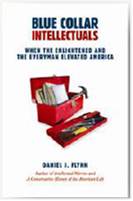|
|
|
"When you hear the word 'library'," a student once explained to the Boston Globe, "you think of books, but very few students actually read them." One Massachusetts prep school estimates that only a few dozen books have ever been checked out of its library at one time. The New York Public Library now offers video games, a sign that libraries have, in the words of author Daniel J. Flynn, been transformed "from centers of education to centers of amusement, from quiet sanctuaries in a noisy world to extensions of that high-decibel environment in which 'shh' is the only verboten sound."
Will and Ariel Durant had only one college degree between them, but they were two of the 20th century's most popularly read historians -- despite their lack of formal training. Mortimer Adler didn't have a high school diploma, but worked his way through an Ivy League Ph.D. anyway. His Great Books Movement, writes Flynn, was one of the most successful adult education programs in history. Milton Friedman was raised by Jewish immigrants whose home doubled as a sweatshop, but he became one of the 20th century's most important economists and won a Nobel Prize in 1976. Eric Hoffer's prime-time CBS specials and his book, The True Believer, belied his skid row background, and attracted the attention of a president. Ray Bradbury didn't let his humble beginnings keep him from elevating both his readers and the science fiction genre in which he wrote. Blue-collar intellectuals, argues Flynn, were a uniquely 20th century phenomenon. Cheap printing, communications advances, and Carnegie-funded libraries enabled those from the working class to share their education with their peers. Those resources still exist, but the kind of people who used to take advantage of them mostly don't: "There was a massive demand for blue-collar intellectuals throughout much of the twentieth century because there was a massive demand for intellectual betterment," he writes. "There isn't a massive supply of blue-collar intellectuals today because the enlightened do not feel a vocational pull to reach out to the everyman and the everyman expresses little demand for intellectual betterment." (ISI Books, 2011, 200pp., $27.95) |
 Flynn's latest book, Blue Collar Intellectuals, calls for a return to the days when libraries held actual books and leisure time was not all wasted on video games and reality TV. Flynn examines five of the 20th century's "blue-collar intellectuals," thinkers from a working-class background who aimed to share their hard-won education with a mass audience.
Flynn's latest book, Blue Collar Intellectuals, calls for a return to the days when libraries held actual books and leisure time was not all wasted on video games and reality TV. Flynn examines five of the 20th century's "blue-collar intellectuals," thinkers from a working-class background who aimed to share their hard-won education with a mass audience.

